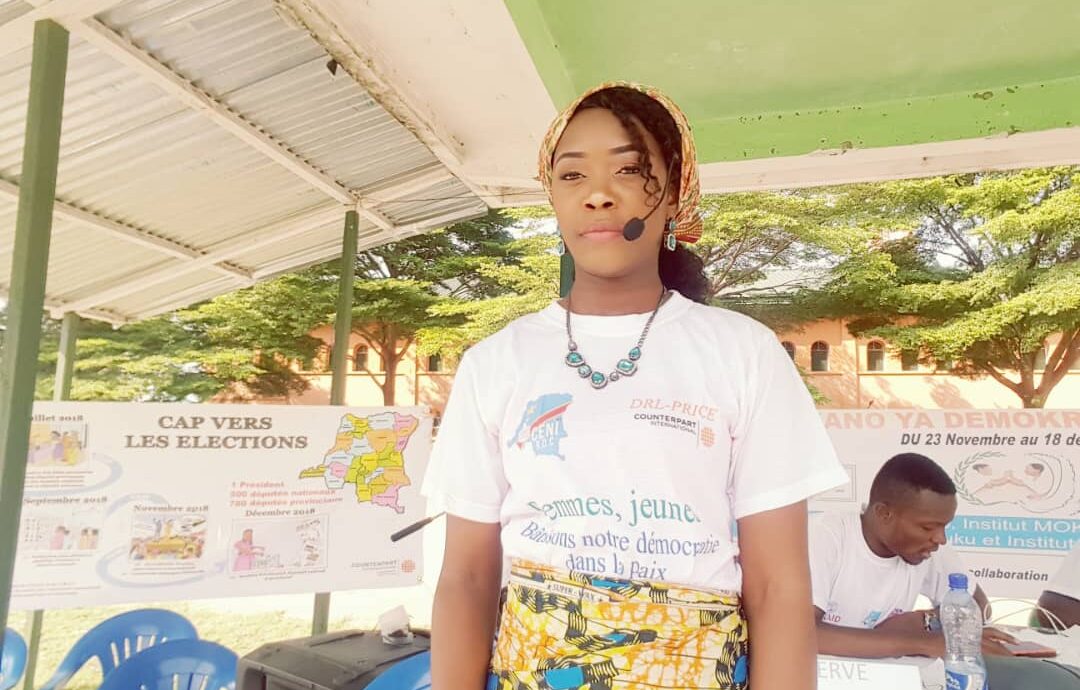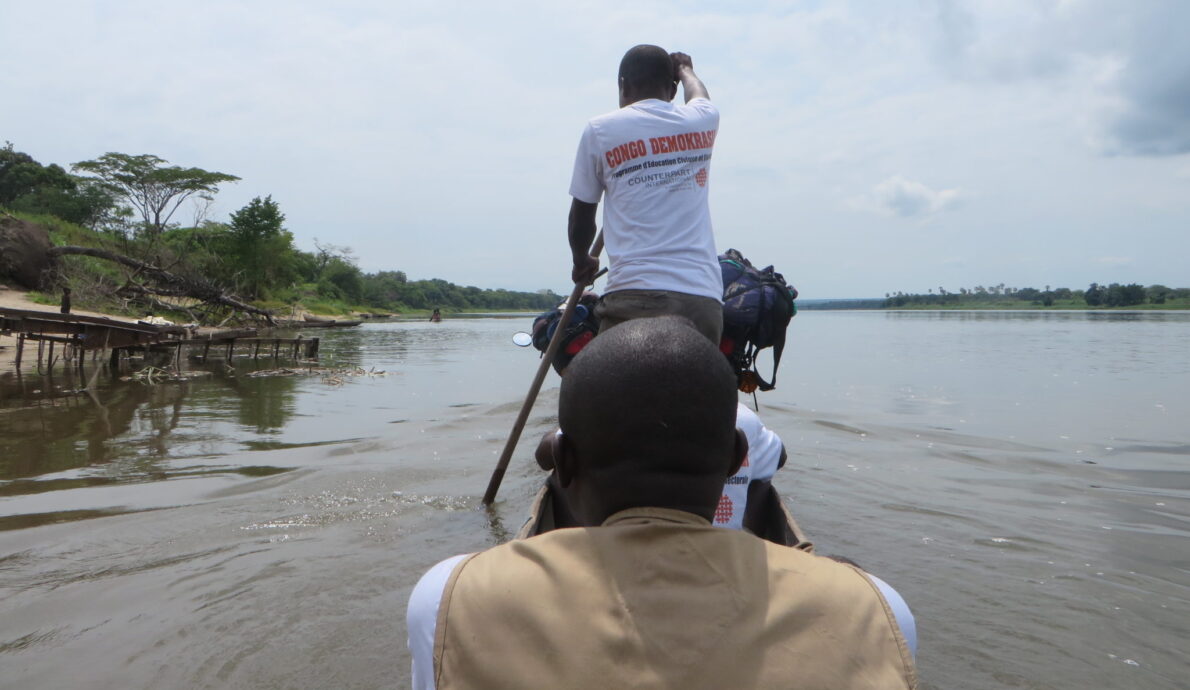Congo’s elections at the end of December were a long time coming. Originally scheduled for December 2016, they were postponed at that time and then again in December 2017 for technical and other reasons. Despite these delays, Congolese civil society organizations have stayed focused on the prize: educating citizens and voters throughout the country on their civic rights and responsibilities, how to register to vote, the steps in the electoral process and calendar and, ultimately, how to assess a candidate and vote for their choice on election day.
Counterpart supported 35 experienced civil society organizations across the country to reach out to citizens in urban and rural areas (including traditionally marginalized groups such as women, youth, and the disabled) to provide timely, community-based information on the electoral process that was not otherwise available. Over 3.5 million Congolese received face-to-face information from community facilitators known as “animateurs,” while complementary voter information was broadcast through a series of national radio spots on 90 community radios reaching 10.8 million people.
On election day – December 30, 2018 – despite obstacles (including the last minute changing of some polling station locations), nearly 19 million Congolese voted, according to figured publicly released by the national election commission (CENI). Out of that number, the CENI reported that Felix Tshisekedi received 7 million votes, Martin Fayulu received 6.3 million votes, and Emmanuel Shadary received 4.3 million votes.
Since the announcement of Felix Tshisekedi as provisional winner of the Presidential race, Counterpart’s local partners have continued to reach out to voters with messages of tolerance, peaceful electoral dispute resolution, and respect for established mechanisms.
As the incoming President takes office and the newly elected National and Provincial Assemblies convene, the focus will now shift to the next series of elections. These include the indirect elections of Senators and Provincial Governors in March and the local government elections scheduled for later in 2019. The direct elections of urban and rural Sector Councils have not taken place since the first years after Independence in 1960 despite their importance; it is in these forums where citizens can have the most direct contact with their elected representatives.
Over this next year, Counterpart’s contribution will be to continue to support partner organizations to reach out to voters with information on these key elections and how to determine the candidate who is likely to offer the best development solutions for them, their families, and their neighbors. Encouraging people to vote, speak up, and participate peacefully – to continue the level of engagement in the current and upcoming electoral processes – remains vitally important.
The authors are Joan Parker, Counterpart International’s President & CEO, and Steven Sharp, Counterpart’s Chief of Party for the Congo Demokrasia project and the Promoting Increased Civic Engagement in the Lead-up to Elections (PRICE) project. Counterpart International has been the partner of USAID and UKAID delivering civic and voter education in 16 provinces of the DRC.




